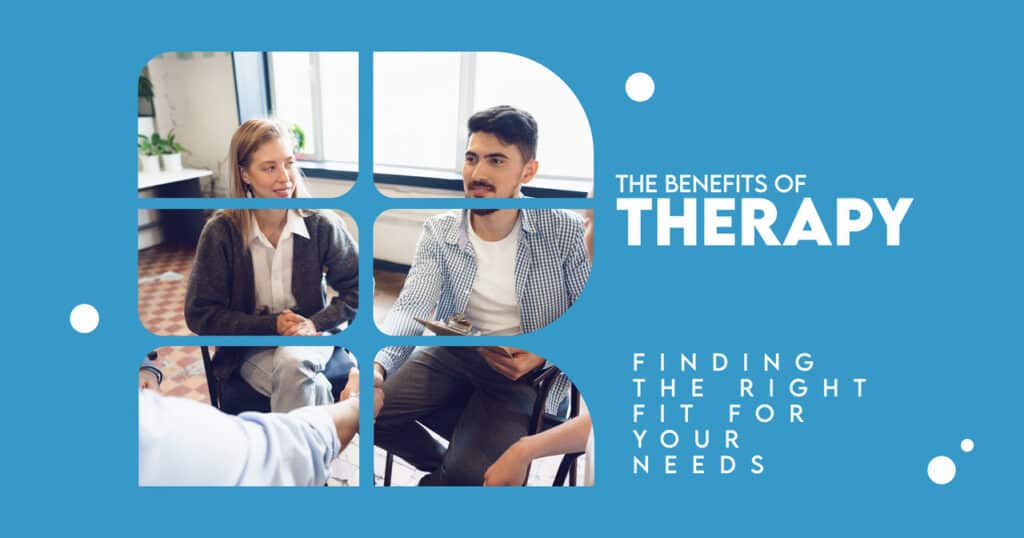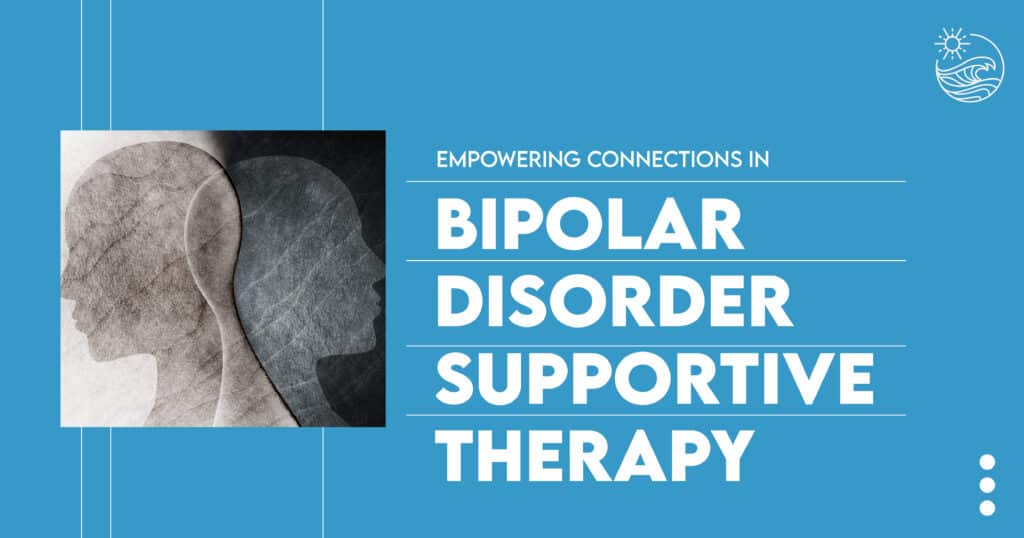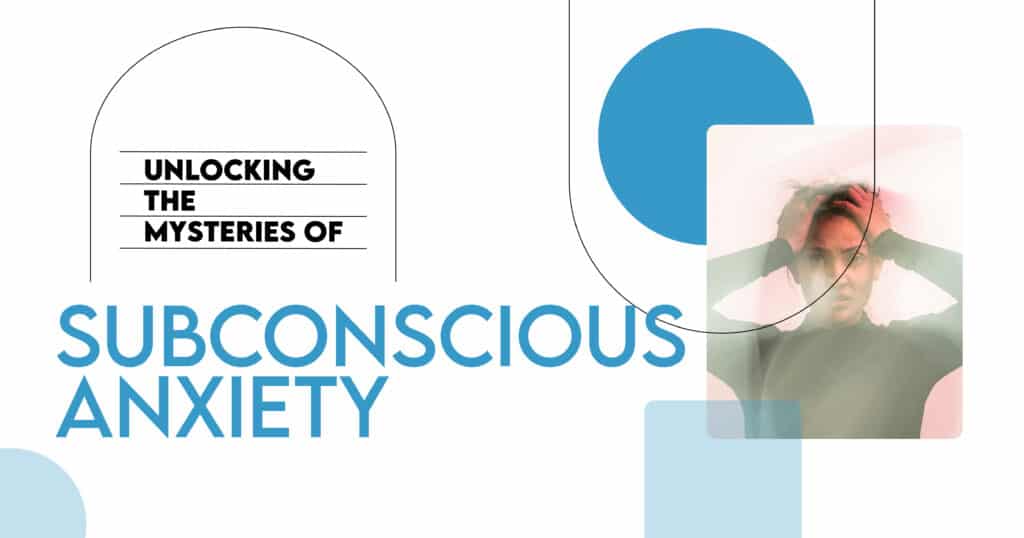Therapy isn’t just for those with deep psychological issues or crises; it’s a valuable tool for anyone seeking to improve their mental health, manage stress, or navigate life transitions. Yet, despite its proven benefits, many people still have questions about what therapy entails and how to find the right fit. If you’ve ever wondered if therapy could be right for you, or how to make the most out of it, you’re in the right place. Let’s dive into the benefits of therapy and explore how you can find the best therapist for your needs.
Essential Takeaways
- Therapy Offers Valuable Support and Growth: Therapy provides a structured space for emotional relief, skill development, and personal growth. It helps individuals understand their emotions, develop coping strategies, and enhance self-awareness, contributing to overall mental well-being.
- Choosing the Right Therapist is Crucial: Finding a mental health professional who matches your needs and preferences is essential for a successful therapeutic experience. Consider factors such as the therapist’s credentials, specialization, communication style, and personal compatibility when making your choice.
- Commitment and Active Participation Enhance Therapy: To maximize the benefits of therapy, it’s important to stay committed to the process, set clear goals, and actively engage in sessions. Consistency, openness, and patience play a key role in achieving meaningful progress and improving mental health.
Why Therapy Matters
The Power of Talking It Out
We’ve all heard the saying, “A problem shared is a problem halved.” Well, in therapy, this principle rings particularly true. Therapy provides a structured space where you can talk openly about your thoughts and feelings without judgment. This can be incredibly liberating and therapeutic in itself. Talking things through with a trained professional helps you gain clarity, understand your emotions better, and develop strategies to cope with various mental health challenges.
Therapists are skilled at guiding conversations in a way that helps you explore your inner world and make sense of your experiences. They offer a fresh perspective and can provide insights that might not be immediately apparent. The therapeutic process helps you untangle complex emotions, gain self-awareness, and develop a deeper understanding of yourself, especially during difficult times.
Overcoming Stigma
Therapy has historically been shrouded in stigma, often misconceived as a last resort for those with severe mental health disorders. But the truth is, therapy can be incredibly beneficial for anyone looking to enhance their mental well-being. It’s about personal growth, not just managing crises. By normalizing the conversation around therapy and acknowledging its benefits, we can encourage more people to seek help when they need it.
It’s important to understand that seeking therapy is a proactive step towards a healthier and more fulfilling life. Just as you’d see a doctor for physical health concerns, seeing a therapist for mental health issues is a sign of strength and self-care.
Exploring the Benefits of Therapy
Understanding Therapy
What is Therapy?
At its core, therapy is a collaborative process between a trained professional and an individual seeking to address emotional, psychological, or behavioral issues. There are various types of therapy, each with its approach and techniques, but the central goal remains the same: to help you understand and resolve issues affecting your mental health.
Therapists use a range of techniques and strategies to help you address your concerns. These might include talking through your problems, identifying and changing negative thought patterns, and developing coping strategies. The therapeutic relationship itself is a crucial element of the process, providing a safe and supportive environment for growth and healing.
Different Types of Therapy
Navigating the world of therapy can be overwhelming, especially with so many types available. Here’s a brief overview of some common types:
- Cognitive Behavioral Therapy (CBT): This evidence-based approach focuses on identifying and changing negative thought patterns and behaviors. CBT is highly effective for treating anxiety disorders, depression, and other mood disorders.
- Psychodynamic Therapy: This type explores unconscious processes and past experiences that shape current behavior. It’s useful for addressing deeper-rooted emotional issues and understanding how past experiences impact present relationships, which can include familial relationships and personal relationships.
- Humanistic Therapy: Humanistic therapy emphasizes personal growth and self-actualization. It focuses on helping individuals achieve their full potential and is often used to address self-esteem issues and personal development.
- Family Therapy: This approach involves working with families to improve communication and resolve conflicts. It’s particularly helpful for addressing issues that affect the entire family system, such as relationship issues or parenting challenges.
Each type of therapy has its unique benefits, and the best approach depends on your individual needs and goals.
How Therapy Can Help You
Emotional Relief and Support
One of the most immediate benefits of therapy is emotional relief. Talking about your problems with a professional can help you process your feelings, gain new perspectives, and develop strategies for coping. Whether you’re dealing with anxiety disorders, depression, relationship issues, or just feeling overwhelmed, therapy provides a space to explore these emotions and find ways to manage them effectively.
Therapists are trained to listen empathetically and offer support, helping you feel heard and understood. This can be incredibly validating and comforting, especially if you’re dealing with complex or distressing emotions.
Skill Development
Therapy isn’t just about talking through your problems; it’s also about developing practical skills that can help you manage and overcome challenges. For example:
- Coping Skills: Therapists can teach you techniques for managing stress, anxiety symptoms, and other difficult emotions. These might include breathing exercises, relaxation techniques, mindfulness practices, or cognitive restructuring.
- Problem-Solving Skills: Therapy often involves working on problem-solving techniques to address specific issues in your life. This might include setting goals, creating a plan of action, and developing strategies for tackling obstacles.
- Interpersonal Skills: Therapy can help you improve your communication skills and relationship skills, making it easier to navigate social interactions and build healthier relationships, including setting healthy boundaries.
By equipping you with these tools, therapy empowers you to handle challenges more effectively and make positive changes in your life.
Personal Growth and Self-Awareness
One of the most profound benefits of therapy is personal growth. Through the therapeutic process, you gain insights into your thoughts, feelings, and behaviors, helping you understand yourself better. This increased self-awareness can lead to meaningful personal growth and positive changes in your life.
Therapy encourages self-reflection and exploration, helping you identify patterns of behavior in your relationships and within yourself. This self-discovery can lead to increased self-acceptance, improved self-esteem, and a greater sense of purpose.
The Therapeutic Relationship
Building Trust with Your Therapist
The relationship you have with your therapist is a critical component of successful therapy. Trust and rapport are essential for creating a safe and supportive environment where you feel comfortable sharing your thoughts and feelings.
A good therapist should be empathetic, non-judgmental, and genuinely interested in helping you. Building a strong therapeutic relationship involves open communication, mutual respect, and a shared commitment to your goals.
If you ever feel uncomfortable or unsure about your therapist, it’s important to discuss these feelings with them. A good therapist will be open to feedback and willing to work with you to address any concerns.
The Role of Therapist Attributes
When choosing a therapist, consider the following attributes to ensure they are a good fit for you:
- Empathy: A therapist should be able to understand and relate to your experiences and emotions. Empathy helps build a strong connection and fosters trust in the therapeutic relationship.
- Professionalism: Look for a therapist who is professional and adheres to ethical standards. This includes maintaining confidentiality, respecting boundaries, and providing competent care.
- Communication Style: The way a therapist communicates can significantly impact your experience. Choose a therapist whose communication style resonates with you and makes you feel comfortable.
By considering these attributes, you can find a therapist who is well-suited to your needs and preferences.
Finding the Right Therapist for Your Needs
Identifying Your Therapy Needs
Before starting therapy, take some time to reflect on your needs and goals. Ask yourself questions like:
- What are my main concerns or challenges? Understanding what you want to address in therapy will help you find a therapist who specializes in those areas.
- What goals do I want to achieve? Setting clear goals for therapy can guide the process and help you measure progress.
- What qualities are important to me in a therapist? Consider factors like the therapist’s approach, communication style, and any specific requirements you may have.
By clarifying your needs and goals, you can make a more informed decision when selecting a therapist.
Researching Therapy Specializations
Mental health professionals often have specialized areas of expertise, so it’s important to find one who matches your specific needs. Here are some common specializations:
- Child and Adolescent Therapy: For issues related to children and teenagers, including behavioral problems, academic challenges, and emotional difficulties.
- Couples Therapy: Focuses on improving relationships between partners and addressing issues like communication problems and conflict resolution.
- Trauma Therapy: Specializes in helping individuals heal from traumatic experiences and manage symptoms related to post-traumatic stress disorder (PTSD) and other trauma-related conditions.
- Substance Abuse Therapy: Provides support and treatment for individuals struggling with addiction issues or substance abuse.
Researching therapists’ specializations and finding one who aligns with your needs will enhance the effectiveness of your therapy experience.
Making the Most of Your Therapy Experience
Setting Goals and Expectations
Before your first therapy session, it’s helpful to set clear goals and expectations. Discuss your objectives with your therapist and collaborate on a plan for achieving them. Setting measurable goals can help you track your progress and stay focused on what you want to accomplish.
Staying Committed to the Process
Therapy is a journey that requires commitment and active participation. Consistency is key—attend sessions regularly, practice the skills you learn, and be open to exploring difficult emotions. The more you invest in the process, the more you’ll benefit from it.
Patience is Key
Change takes time, and it’s important to be patient with yourself as you navigate the therapeutic process. Progress may not always be linear, and setbacks can happen. Trust the process and give yourself grace as you work towards your goals.
Conclusion Therapy is a powerful tool for personal growth, healing, and enhancing your overall mental health. By understanding its benefits, choosing the right therapist, and committing to the process, you can unlock the transformative potential of therapy. Whether you’re facing specific challenges or simply looking to improve your well-being, therapy can provide valuable support and guidance on your journey to a happier, healthier you.
FAQs
1. How do I know if therapy is right for me?Therapy can be beneficial if you’re experiencing emotional distress, struggling with mental health issues, or seeking personal growth. Common signs that therapy might be right for you include feeling overwhelmed, having difficulty managing emotions, facing relationship problems, or struggling with self-esteem. If you’re unsure, a consultation with a mental health professional can help assess your needs and determine if therapy is a suitable option.
2. How can I find a therapist who specializes in my specific issue?To find a therapist who specializes in your specific issue, start by researching online directories, asking for recommendations from healthcare providers, or seeking referrals from friends or family. You can also contact therapists directly to inquire about their areas of expertise and whether they have experience addressing your particular concerns.
3. What should I expect during my first therapy session?During your first therapy session, you can expect to discuss your background, current concerns, and goals for therapy. This initial meeting is an opportunity for you and your therapist to get to know each other, establish rapport, and develop a plan for addressing your needs. The session may include exploring your personal history, discussing your reasons for seeking therapy, and setting goals for the therapeutic process.
4. How long does therapy usually take to show results?The time it takes to see results from therapy can vary depending on individual factors, such as the nature of the issues being addressed, the type of therapy used, and personal commitment. Some people may notice improvements within a few sessions, while others may require several months of therapy. Consistency, active participation, and a strong therapeutic alliance contribute to the effectiveness of therapy and can impact the timeline for achieving results.
5. What if I don’t feel comfortable with my therapist?If you don’t feel comfortable with your therapist, it’s important to address your concerns. You can discuss your feelings openly with your therapist to see if adjustments can be made. If you continue to feel uncomfortable or feel that the therapeutic relationship isn’t working, it’s okay to seek a different therapist. Finding a therapist with whom you feel at ease and can build a trusting relationship is crucial for effective therapy.








